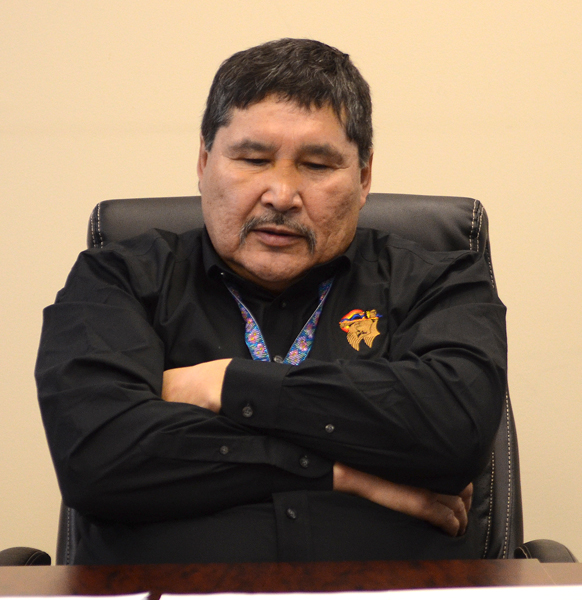First Nations leaders are calling on both levels of government to provide the resources and the support needed to address the health crisis intensified by the outbreak of COVID-19 in the northern community of Hatchet Lake Denesuline Nation.
The community of 2,069 has been on complete lockdown since June 30 and all residents are deemed a close contact and in isolation. As of today, there are 14 new confirmed cases of COVID-19 reported in the community, bringing the total to 109 cases linked to the outbreak.
“We are dealing with a surge in cases of COVID-19, and I want to acknowledge all the people working around the clock to help us, including our emergency response team, the frontline workers, medical staff, RCMP and all others who have come together to help battle this situation,” Chief Bart Tsannie, Hatchet Lake Denesuline First Nation, said in a release.
“But we are a community in crisis and we need the resources and support of both levels of government to address foundational issues, such as overcrowding, which has caused the cases of COVID-19 to go out of control,” he added.
The community has 96 active cases. Another 13 residents have recovered. Three have been hospitalized, including one ICU hospitalization.
In the release, from the PAGC they said that with the pandemic, it is clear that the greatest gap in health is the lack of proper housing, along with unacceptable water and sewer service, house repairs, maintenance and overcrowding.
“We are calling on the federal and provincial government to ensure the needs of our most remote, isolated, fly-in communities are made a priority, as containing the spread of the virus is made even more difficult with underlying issues of inadequate infrastructure,” PAGC Grand Chief Brian Hardlotte said. “Our communities are doing the best they can with the resource sand facilities they have; yet, funding commitments to improve their health centre will make a difference in ensuring both their immediate and long-term health and safety.”
As of Tuesday, the five trailers and five hotel rooms reserved for isolation purposes are almost at capacity. There is a growing concern in the community that there will be a shortage of places to place families.
“The crowded living condition in Hatchet Lake has increased the risk of COVID-19 transmission in households,” Dr. Nnamdi Ndubuka, Medical Health Officer for the Northern Inter-Tribal Health Authority said. “Although poor housing conditions has been a long-standing problem, the pandemic has brought this issue to the fore. This has posed a significant challenge for the public health team in containing the outbreak. I am very concerned about serious cases that would require medevac out of the community because there are often delays in this process.”
There are also issues related to the community health centre operating beyond its maximum capacity, and the need for timely medical evacuation airlifts, which can take up to nine hours or three days depending on the weather. To help with the relief efforts, the leadership has also requested the Canadian Rangers to assist with the production of distribution of food, firewood and care packages.
Access to Wollaston Lake and Hatchet Lake Denesuline First Nation is provided by the Wollaston Barge Ferry during the summer.


